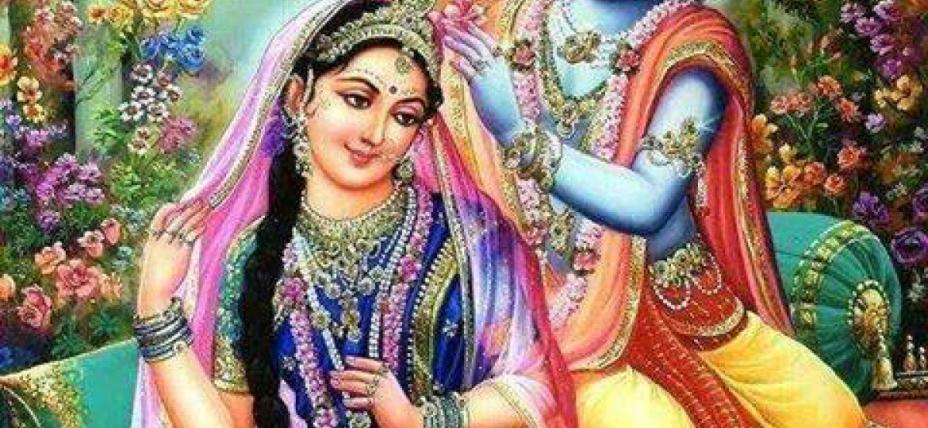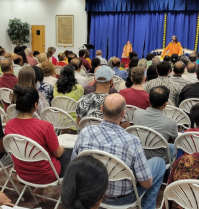Nature of Bhakti
Bhakti Yog / November 16, 2015

We all have learned that Shree Krishna can only be attained by loving devotion or bhakti. In Chapter 12 of the Bhagavad Gita, Shree Krishna explains the concept of Bhakti Yog, its nature, and importance in attaining him.
We all have heard stories of how the greatest jñānis of each yug also realized that they would be unable to attain Shree Krishna without bhakti. Examples include the four kumaras – Sanat, Sanaka, Sanatana, and Sanandana – during Satya Yug, King Janak during Treta Yug, and Uddhav during Dwapar Yug.
Shree Maharajji has also explained the three basic criteria for bhakti – ananya (exclusive), nirantar (constant meditation upon the personal form of God), and nishkam (selfless).
But what exactly is this concept of loving devotion or divine love that is being discussed? As material beings, we understand material love wherein there is a lot of give and take. The underlying sentiments and the associated implicit message are typically, “I do this for you so it’s your turn to do this for me.” However, Shree Maharajji labels that as lust, not love. In order to move past lust and onto love, Swamiji explains the nature of bhakti as follows.
First, it is ever increasing irrespective of the behavior of the beloved. As strange as this sounds, the nature of bhakti is such that it is always increasing. Think of it as an upward sloping straight line. So no matter what happens or how the beloved behaves with us, we constantly forgive him. In the material realm, this could be considered so extreme that where there is a reason for love to be destroyed but it is not destroyed – that is true love. Such love cannot be cut or reduced.
Second, don’t see the qualities of the beloved. In order to maintain this upward sloping straight line, it is recommended we become blind to the faults of the beloved. In our daily material lives, when we claim to love another, it is based on certain behavior patterns we perceive and label as “good.” For instance, we love our spouse or significant other when they do things for us that we like or when they make sacrifices for our sake. Similarly, they also reciprocate the love when we make sacrifices for them.
But what happens when they behave in a selfish manner toward us? At that time, there are many negative thoughts that come to mind such as “I don’t like you right now” or “Wait and watch until it’s your turn” or “How selfish! After everything I’ve done for you, why can’t you do this much for me???” etc. As soon as we see or experience or perceive the negative qualities, our so called “love” diminishes and could potentially die.
Third, true bhakti means complete selflessness. In other words, we don’t desire anything from the beloved. Instead we channel all our desires into aligning them with the beloved’s and fulfilling them. This ensures that selfishness is gradually eroded to such an extent that there is no trace of it left behind.
If we claim to “love” Guru and God because they fulfill our desires for material happiness such as more wealth, increased stature in society, peaceful relationships with others, etc. then as soon as they stop doing such things for us, our so called love for them will also die.
So instead of continually asking them for things, let’s strive to give to them in return. Let’s align our desires such that our only desire is to fulfill all their desires. By maintaining such an attitude, it ensures that the straight line stays in an upward direction.
Fourth, it is to be experienced (anubhav rupam). Theoretical knowledge is not enough and experience without the knowledge will be misleading or a waste. This pure love is to be experienced because, unlike material love, it is subtle – so much so that it pervades our entire body, mind, and intellect – to such an extent that we are only constantly thinking of the beloved and his/her happiness alone.
Click here to watch a quick 10 min video clip wherein Swamiji explains this concept. In his explanation of verse 18: 55 of the Bhagavad Gita, Swamiji writes that “it is love that opens the door to the impossible and makes way for the inaccessible.” And so it is this love that pushes us to reach heights we once considered impossible. As they say in the movies, “I love you just because….” So let’s strive to love Guru and God “just because.”

























